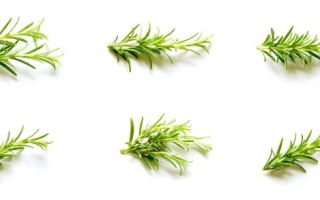Diet for duodenal ulcers is one of the most important factors in treatment.
Content
Basic nutrition rules
The main principle when creating a menu is the principle of sparing the gastrointestinal tract, eliminating all irritants - mechanical, chemical, thermal. Such a menu should be aimed at reducing the motor and secretory activity of the gastroduodenal zone, facilitating the evacuation of chyme from the stomach into the duodenum.
A gentle diet reduces the reflex activity of other digestive organs. When drawing up an anti-ulcer diet, it is necessary to take into account the ability of foods to influence acidity.
Proteins play a major role in the process of mucosal restoration . It increases the resistance of the mucous membrane to the action of digestive enzymes (protects against self-digestion).
An important role is played by fats and carbohydrates - they inhibit the secretion of gastric glands. Fats (unsalted butter and vegetable oils) are the most valuable nutritious and medicinal products, contain vitamins A and D, and reduce spasms of the muscles of the stomach and intestines.
Soft-boiled eggs and mashed potatoes prevent the development of heartburn and reduce pain.
What foods are harmful?
Excluded from the diet
- strong broths,
- fish and vegetable broths,
- spicy seasonings,
- pickles and marinades,
- smoked meats,
- canned foods,
- sweet dough,
- drinks that stimulate the formation of acid in the stomach (Fanta, Coca-Cola, Sprite, champagne, sparkling mineral water, sour juices),
- citrus,
- ice cream,
- coffee,
- cocoa,
- tea in limited quantities,
- fatty beef, lamb, goose, duck,
- cakes.
Diet No. 1
This therapeutic diet M.I. Pevzner is developed for peptic ulcers. Table No. 1a is prescribed for exacerbation for 10-14 days in combination with drug treatment. If the pain does not stop, the diet can be used for a longer time. Then the food ration is expanded, tables No. 1b and “transitional” No. 1c are assigned.
Table No. 1a is prescribed during an exacerbation of peptic ulcer or gastritis with high acidity.
Recommended Products
The calorie content of the diet is 2600-2800 kcal, it contains:
protein - 100 g,
fat - 100 g,
carbohydrates - 400 g.
The composition of therapeutic nutrition includes
- soups - pureed potatoes and carrots,
- unsalted butter,
- curdled milk,
- kefir,
- omelettes, soft-boiled eggs,
- lean beef, boiled chicken and in the form of steam cutlets, meatballs,
- milk soups with noodles,
- porridge,
- puddings,
- lean ham,
- jelly,
- weak tea.
Vegetables should be well cooked and chopped, fruits should be pureed.
Stale bread is allowed for baked goods.
You should eat food often - every 2-3 hours in small portions.
Diet No. 2
Patients with chronic gastritis with low acidity during the period of exacerbation are prescribed table No. 1, and then table No. 2.
Diet No. 2 is also gentle, but retains chemical irritants.
The diet for table No. 2 includes
- meat and chicken broths,
- vegetable decoctions,
- fish soup,
- boiled lean meat, steam cutlets,
- boiled vegetables, fruits,
- rosehip decoction,
- juices - lemon, cranberry, black currant,
- stale white bread, crackers, dry biscuits,
- kefir, fermented baked milk,
- unsalted butter and vegetable oils,
- soft-boiled eggs, omelet,
- low-fat soups without spicy seasonings.
Excluded
- fatty fish and meats,
- fried pies,
- smoked meats,
- spices - pepper, adjika, mustard,
- black and fresh bread,
- fresh dough products,
- cabbage,
- grape.
Meals should be frequent, in small portions, 5-6 times a day.
In addition to therapeutic nutrition for duodenal and gastric ulcers, it is necessary to lead a healthy lifestyle, avoid smoking and drinking alcohol.







